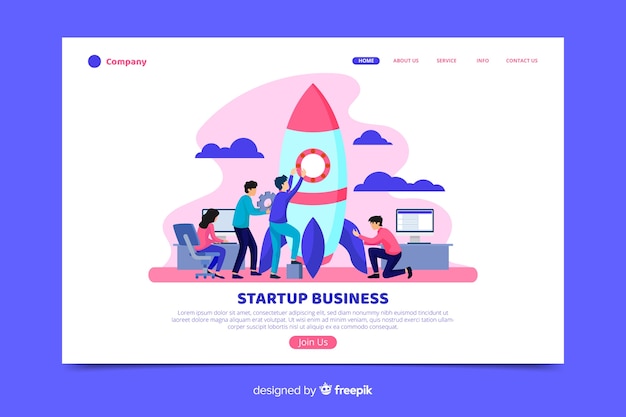Launching a Fail-Safe Small Enterprise: Discovering Your Interests and Abilities
This piece aims to walk you through the necessary steps to launch a fail-safe small enterprise, offering practical guidance and specific recommendations to aid your success. Let’s dive in!
 To launch a fail-safe small enterprise, it’s vital to start by discovering your interests and abilities. This will assist you in deciding the kind of business you wish to launch and ensure that you take pleasure in managing it. By matching your interests and abilities with a feasible business concept, you’ll be on the path to success.
To launch a fail-safe small enterprise, it’s vital to start by discovering your interests and abilities. This will assist you in deciding the kind of business you wish to launch and ensure that you take pleasure in managing it. By matching your interests and abilities with a feasible business concept, you’ll be on the path to success.
1. Discover Your Specialized Market
- Grasping the significance of a specialized market
- Investigating potential specialized markets
- Assessing competition and demand
- Formulating your unique value proposition (UVP)
Prior to investing time and resources into your enterprise, there’s a high likelihood that you’ll need to discover a specialized market. A specialized market is a smaller, focused subset of a larger market, which enables you to concentrate your efforts and cater to a particular group of customers.
You should start by investigating potential specialized markets and assessing the competition and demand within each one.
This can be accomplished using tools like Ahrefs and Google Trends.
When you’ve discovered a specialized market that you’re enthusiastic about and has growth potential, formulate your unique value proposition (UVP) to distinguish your enterprise from the competition.
2. Investigate, Experiment, and Confirm Your Concept to Determine Its Feasibility
- Conducting market research for your specialized market
- Identifying your target audience and their requirements
- Developing a Minimum Viable Product (MVP) or service
- Collecting feedback from potential customers
- Examining the results and making necessary modifications
- Ensuring your concept is scalable and profitable
Once you’ve discovered your specialized market, it’s crucial to investigate, experiment, and confirm your concept to determine its feasibility. Market research is a vital step in this process, and it involves collecting information about your target audience and their requirements.
This can be accomplished through online surveys, focus groups, and interviews.
You can also refer to our guide on how to conduct market research on a budget for more information.
After you’ve collected data about your target audience, develop a Minimum Viable Product (MVP) or service to test the feasibility of your business concept. For a step-by-step guide on creating an MVP, check out our MVP guide.
Once your MVP is ready, collect feedback from potential customers to better understand their needs and preferences. Examine the results, make any necessary modifications, and ensure your concept is scalable and profitable before fully launching your enterprise.
3. Crafting a Fail-Safe Business Strategy
- Grasping the significance of a business strategy
- Formulating your mission statement and objectives
- Developing a marketing and sales strategy
- Establishing financial projections and budgets
- Planning for potential risks and challenges
A fail-safe business strategy is a vital tool for any successful small enterprise. It assists you in establishing a clear direction, setting objectives, and making informed decisions about your enterprise’s future.
To create a robust business strategy, start by formulating your mission statement and objectives, which will assist in guiding your overall strategy.
Next, develop a marketing and sales strategy that outlines how you will promote and sell your products or services. This should include details on your target audience, marketing channels, pricing, and sales techniques. In addition, you’ll need to establish financial projections and budgets to ensure your enterprise remains financially viable.
Finally, plan for potential risks and challenges by identifying possible obstacles and creating contingency plans to address them.
4. Legal Considerations and Compliance
- Selecting a business structure
- Registering your business name
- Acquiring necessary licenses and permits
- Understanding tax obligations
- Protecting your intellectual property
When launching a fail-safe small enterprise, it’s crucial to consider the legal aspects and ensure you are in compliance with all regulations.
First, select a business structure that best suits your needs, such as a sole proprietorship, partnership, limited liability company (LLC), S-corp, or corporation. LLC is the most common business structure. Next, register your enterprise name to establish its legal identity.
Additionally, you’ll need to acquire any necessary licenses and permits required for your specific industry or location. Familiarize yourself with your tax obligations, including sales tax, payroll tax, and income tax, to avoid any issues with the IRS. Lastly, protect your intellectual property by securing trademarks, copyrights, or patents as needed.
5. Building Your Online Presence
- Developing a professional website
- Establishing your brand on social media
- Formulating an email marketing strategy
- Applying search engine optimization (SEO) techniques
An online presence is crucial for any small enterprise in today’s digital world.
Start by developing a professional website that showcases your products or services and provides information about your enterprise.
Next, establish your brand on social media platforms such as Facebook, Instagram, LinkedIn, and Twitter to engage with potential customers and grow your audience.
Formulate an email marketing strategy to communicate with your customers and prospects regularly, offering promotions, updates, and valuable content.
Finally, apply search engine optimization (SEO) techniques to improve your website’s visibility on search engines like Google, ensuring your enterprise can be easily found by potential customers.
6. Launching and Expanding Your Fail-Safe Small Enterprise
- Formulating a launch strategy
- Implementing your marketing and sales plans
- Measuring and analyzing your success
- Adapting and refining your strategy as needed
With all the necessary groundwork in place, it’s time to launch and expand your fail-safe small enterprise.
Develop a launch strategy that includes a timeline, budget, and specific objectives to help you successfully kickstart your enterprise. Implement your marketing and sales plans to generate interest and attract customers to your products or services.
As your enterprise grows, it’s crucial to measure and analyze your success. Use key performance indicators (KPIs) and analytics tools to monitor your progress, identify areas for improvement, and make data-driven decisions.
Regularly review your marketing, sales, and financial performance to ensure you are on track to meet your objectives.
Adapt and refine your strategy as needed based on your analysis and any changes in the market or industry. Stay flexible and open to new ideas, as this will allow you to pivot and seize new opportunities as they arise.
By continuously learning and evolving, you can ensure the long-term success of your fail-safe small enterprise.
Wrap Up
Launching a fail-safe small enterprise requires meticulous planning, commitment, and a readiness to adapt to changing circumstances.
By following these steps – conducting market research, crafting a fail-safe business strategy, considering legal aspects, building an online presence, and launching and expanding your enterprise – you can enhance your chances of success and build a thriving small enterprise.
Remember that no enterprise is entirely fail-safe, but with diligent work, persistence, and a well-planned strategy, you can minimize risks and maximize your chances of success.


